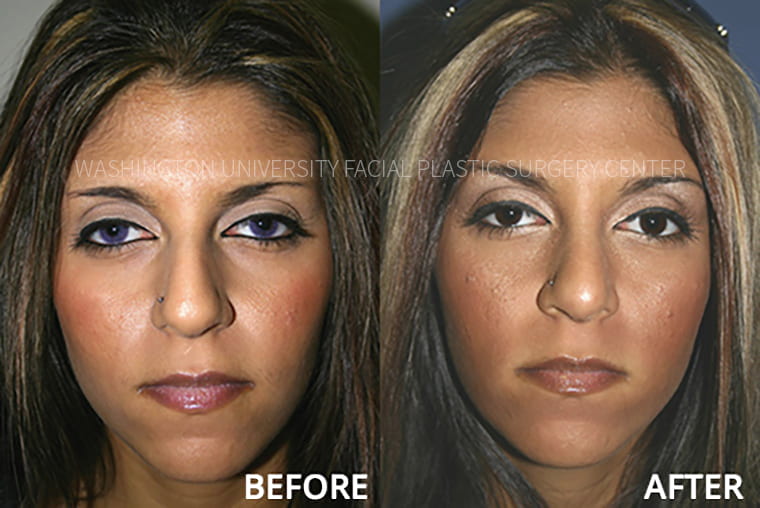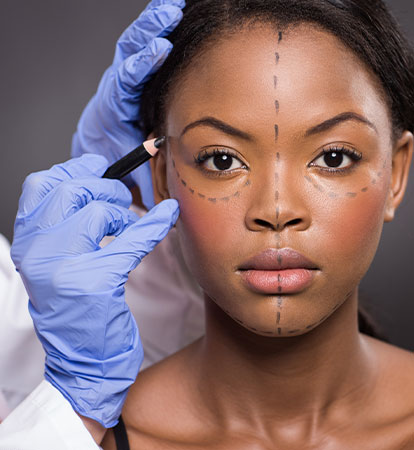Liposuction Bellevue: Target Persistent Fat with Leading Plastic Surgeons
Liposuction Bellevue: Target Persistent Fat with Leading Plastic Surgeons
Blog Article
A Deep Study the Usual Reason for Seeking Aesthetic Surgical Treatment: Unboxing the Need for Modification and Self-Improvement
The inspirations behind the quest of cosmetic surgical procedure prolong beyond simple aesthetic improvement, mirroring a nuanced interplay of social expectations, individual desires, and mental aspects. As people increasingly seek to straighten themselves with prevailing beauty requirements, it ends up being crucial to take a look at the underlying reasons that compel them to make such significant adjustments. The effect of media representations and personal narratives can not be overlooked, as they form understandings and desires in profound methods. This evaluation triggers vital questions about the moral ramifications and future trajectories of aesthetic procedures, inviting more expedition into the complexities of self-improvement and identification.
Social Pressures and Charm Standards

The impact of these charm ideals can be extensive, instilling a feeling of inadequacy in those who do not adhere. As a result, lots of might look for cosmetic surgical procedure as a way of straightening their appearance with these societal expectations. mommy makeover bellevue. This wish for conformity can stem from a broad variety of inspirations, including the desire for enhanced social status, boosted charming leads, or enhanced professional chances
Moreover, these pressures are not restricted to particular demographics; they affect individuals across various ages, genders, and histories, highlighting the prevalent nature of charm criteria. This prevalent influence raises crucial inquiries concerning the principles of plastic surgery and the ramifications of societal requirements on private options. Eventually, recognizing these pressures is critical for cultivating a more inclusive definition of beauty that celebrates diversity.
Individual Experiences and Transformative Stories
Numerous people that undergo cosmetic surgical treatment report transformative experiences that expand beyond plain physical changes. For numerous, these treatments work as a catalyst for enhanced self-worth and a restored feeling of identity. Clients frequently describe feeling liberated from enduring insecurities, leading to boosted self-confidence in both individual and specialist realms.
Take, for instance, the tale of a young female that underwent breast enhancement after years of feeling awkward regarding her look. Post-surgery, she reported not only a newly found comfort in her body but likewise a substantial enhancement in her social life and profession chances. Likewise, a middle-aged man who chose to undertake a renovation shared exactly how the procedure rejuvenated his outlook on life, prompting him to seek new passions and partnerships.
These individual narratives highlight the extensive influence plastic surgery can have on people' lives. As they welcome their transformed selves, several locate empowerment in their selections, often using their experiences to motivate others contemplating similar trips. Inevitably, these transformative tales highlight the diverse reasons people look for cosmetic surgical procedure, intertwining personal development with the search of visual improvement.
Psychological Elements Behind Plastic Surgery
Various mental factors contribute to the choice to undertake cosmetic surgical procedure, showing deeper mental and emotional health and wellness considerations. Individuals typically pursue medical enhancements as a way to deal with feelings of insufficiency, low self-esteem, or frustration with their look. These mental motivations can be rooted in past experiences, social contrasts, or personal aspirations.
Body image distortion is a prevalent issue, where individuals view their physical attributes in an exaggeratedly negative light. This distortion can result in compulsive thoughts regarding perceived problems, motivating the wish for medical alteration as an option - mommy makeover bellevue. Additionally, the quest of perfection and social stress can magnify these sensations, pushing people toward cosmetic procedures in hopes of accomplishing an idyllic variation of themselves
Moreover, the principle of self-improvement plays a critical role. Lots of individuals view cosmetic surgery as a pathway to boost their high quality of life, believing that improved look will bring about enhanced social approval, far better connections, or boosted profession chances. Eventually, the psychological factors behind cosmetic surgery highlight the complicated interaction between specific self-perception and external impacts, revealing the complex nature of the desire for modification.

The Duty of Media in Perception
In today's culture, media plays a pivotal duty fit perceptions of elegance and self-regard. With various systems-- social networks, television, and advertising and marketing-- idyllic criteria of appeal are typically distributed, influencing individual aspirations and self-image. These portrayals frequently highlight slim meanings of appearance, mainly featuring younger, slim, and digitally enhanced pictures, which can develop impractical criteria for people aiming to adjust.
The influence of media is more intensified by the prevalent nature of social media sites, where users are bombarded with curated web content that highlights aesthetic enhancements, supporting a culture of contrast. This continuous exposure can result in sensations of inadequacy among viewers, triggering them to take into consideration plastic surgery as a way of attaining the viewed suitable. Study suggests that people that engage with these media representations are more probable to reveal dissatisfaction with their appearance, strengthening the desire for surgical interventions.
Moreover, the normalization Related Site of cosmetic surgical procedure in media narratives can desensitize target markets, mounting such treatments as commonplace and also necessary for social approval. Therefore, the media's representation of charm not only affects private selections concerning plastic surgery however additionally adds to a more comprehensive social dialogue regarding self-regard and identification.
Future trends and ethical considerations
In the middle of the expanding appeal of plastic surgery, ethical considerations bordering the method have actually ended up being increasingly famous. As the demand for treatments increases, so as well do problems relating to educated approval, the emotional motivations of patients, and the capacity for exploitation by doctors. It is essential for professionals to make certain that clients fully comprehend the dangers and benefits, in addition to the ramifications of their choices, to foster a responsible approach to aesthetic enhancements.
Furthermore, the impact of social media sites and appeal standards questions about the influence on mental health and wellness, particularly among vulnerable populaces. As understanding of body image issues grows, ethical technique demands a careful examination of the inspirations behind surgical interventions. Cosmetic surgeons should stabilize patient wishes with moral duty, making certain that choices are rooted in genuine self-improvement instead of societal pressures.

Conclusion
Finally, the quest of cosmetic surgery is influenced by a confluence of societal stress, personal experiences, and mental aspects. The desire for alignment with prevailing appeal criteria, coupled with the possibility for transformative outcomes, emphasizes the complex inspirations driving individuals towards these treatments. In addition, the duty of media fit understandings of beauty can not be downplayed. As honest factors to consider advance, future patterns in cosmetic surgical treatment will likely reflect recurring social discussions bordering self-improvement and private identity.
Often, social stress and dominating charm criteria play a considerable duty in individuals' choices to pursue cosmetic great site surgical procedure. Ultimately, find more these transformative tales highlight the diverse factors people seek cosmetic surgical procedure, intertwining individual growth with the search of visual improvement.
Numerous individuals view cosmetic surgery as a pathway to enhance their quality of life, believing that boosted appearance will lead to raised social approval, much better partnerships, or boosted career possibilities. Inevitably, the mental factors behind cosmetic surgical procedure emphasize the complex interplay in between specific self-perception and outside impacts, disclosing the complex nature of the desire for adjustment.
As ethical factors to consider progress, future trends in cosmetic surgical treatment will likely mirror ongoing societal discussions bordering self-improvement and private identification.
Report this page